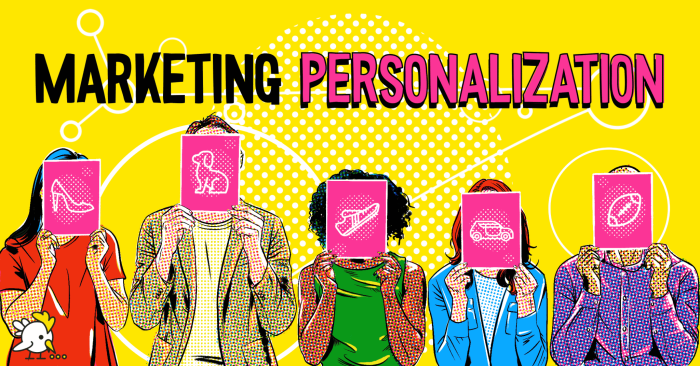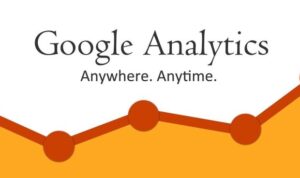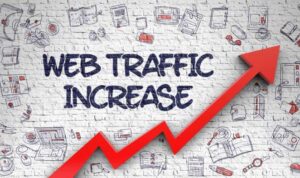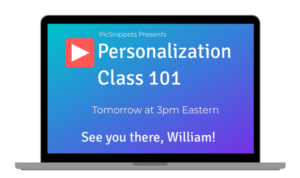Personalization in Marketing is the key to unlocking customer engagement and conversion rates. Step into the world of tailored strategies and dynamic content creation that captivates audiences and drives results.
Learn how successful campaigns leverage personalization to make lasting impressions and discover the tools and technologies that power these innovative marketing efforts.
Importance of Personalization in Marketing
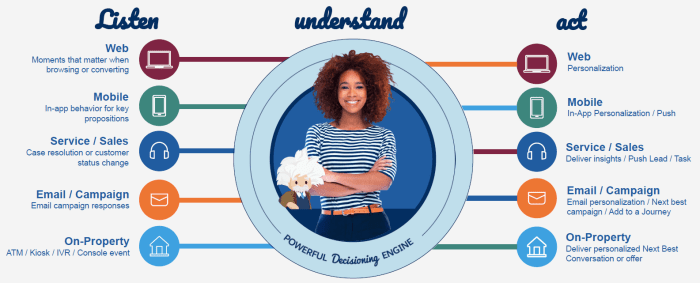
In today’s fast-paced digital world, personalization has become a key component of successful marketing strategies. By tailoring content and messaging to individual preferences and behaviors, businesses can create a more meaningful connection with their target audience, leading to increased engagement and higher conversion rates.
Examples of Successful Marketing Campaigns
- Amazon: The e-commerce giant uses personalized product recommendations based on browsing history and purchase behavior, leading to a significant increase in sales.
- Spotify: The music streaming service creates personalized playlists for users based on their listening habits, enhancing user experience and retention.
- Coca-Cola: The beverage company launched the “Share a Coke” campaign, where personalized bottles with individual names encouraged customers to share their unique experience on social media, resulting in a viral marketing success.
Impact of Personalization on Customer Engagement and Conversion Rates
Personalization plays a crucial role in customer engagement by making individuals feel valued and understood. When customers receive tailored recommendations and offers, they are more likely to interact with the brand and make a purchase. This, in turn, leads to higher conversion rates as personalized marketing messages resonate better with consumers, ultimately driving revenue growth for businesses.
Strategies for Implementing Personalization
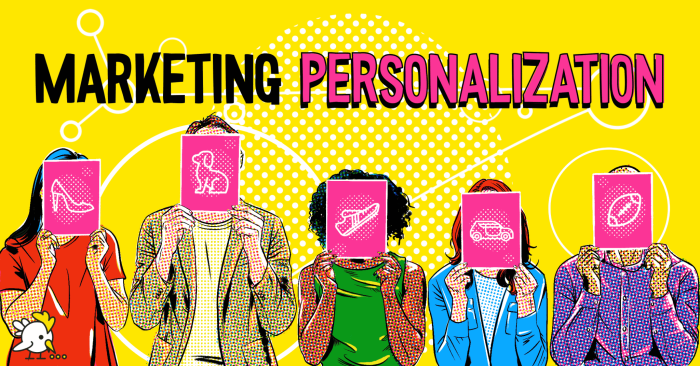
Personalization in marketing can be a game-changer when it comes to engaging customers and driving conversions. Implementing personalized strategies requires careful planning and execution. Here are some key strategies to consider:
Different Methods for Collecting Customer Data for Personalization
When it comes to collecting customer data for personalization, there are various methods that businesses can use. Some common techniques include:
- Utilizing website analytics to track customer behavior and preferences.
- Implementing customer surveys or feedback forms to gather direct insights.
- Tracking purchase history and interaction with marketing campaigns.
- Utilizing social media listening tools to understand customer sentiment and preferences.
Segmenting Target Audiences Based on Collected Data
Segmenting target audiences based on collected data is crucial for delivering personalized marketing messages. Businesses can segment their audiences by:
- Demographic information such as age, gender, location, and income.
- Behavioral data including purchase history, browsing behavior, and engagement with marketing materials.
- Psychographic data like interests, values, and lifestyle preferences.
- Segmenting based on customer lifecycle stage to tailor messages accordingly.
Role of AI and Machine Learning in Automating Personalized Marketing Efforts
AI and machine learning play a significant role in automating personalized marketing efforts by:
“Analyzing large datasets to identify patterns and trends in customer behavior.”
“Predicting customer preferences and recommending personalized content or products.”
“Automating email marketing campaigns with personalized recommendations based on individual customer interactions.”
“Optimizing website experiences in real-time based on user behavior and preferences.”
Personalized Content Creation: Personalization In Marketing
Creating personalized content is crucial in marketing to connect with different customer segments on a deeper level. By tailoring content to their specific needs and interests, you can enhance engagement and drive conversions.
Importance of Dynamic Content
Dynamic content is essential in personalized marketing as it allows you to deliver real-time, relevant messages to your audience. By displaying content that is based on user behavior, preferences, or demographics, you can increase the chances of capturing their attention and prompting action.
- Utilize customer data: Gather information about your customers’ preferences, browsing history, past purchases, and interactions with your brand to create personalized content that resonates with them.
- Segmentation: Divide your audience into different segments based on demographics, behavior, or interests. Tailor your content to each segment to ensure it is relevant and engaging.
- Personalized recommendations: Use algorithms to recommend products or content based on the customer’s interests, purchase history, or browsing behavior. This can lead to higher conversion rates and customer satisfaction.
Examples of Personalized Content
Personalized content can be implemented across various marketing channels to enhance the customer experience and drive engagement.
Email:
Sending personalized emails with the recipient’s name, relevant product recommendations, and exclusive offers can increase open rates and click-through rates.
Social Media:
Tailoring social media posts to specific audience segments, using personalized messaging, and interactive content can help increase engagement and build brand loyalty.
Websites:
Customizing website content based on user behavior, displaying personalized product recommendations, and providing relevant content can improve user experience and drive conversions.
Personalization Technologies and Tools
Personalization in marketing is made possible through a variety of tools and software designed to tailor the customer experience. Let’s explore some popular options and how businesses can leverage them.
Popular Personalization Tools
- 1. Adobe Target: This platform allows businesses to create personalized experiences through A/B testing, recommendations, and automated personalization.
- 2. Salesforce Marketing Cloud: Known for its robust customer segmentation capabilities, this tool helps businesses deliver targeted messages across multiple channels.
- 3. Optimizely: A popular experimentation platform that enables businesses to test different variations of content and features to optimize the customer journey.
Comparing Personalization Platforms, Personalization in Marketing
| Platform | Features | Benefits |
|---|---|---|
| Adobe Target | Advanced A/B testing, personalized recommendations, automated personalization | Improved customer engagement, increased conversions, enhanced user experience |
| Salesforce Marketing Cloud | Customer segmentation, multi-channel marketing, personalized messaging | Targeted communication, better ROI, seamless customer journey |
| Optimizely | Experimentation, optimization, data-driven insights | Increased conversions, better user experience, continuous improvement |
Integrating Personalization Tools
Businesses can integrate personalization tools into their existing marketing systems by ensuring compatibility with their current platforms, training staff on how to use the tools effectively, and setting clear goals for personalization initiatives. By aligning these tools with their overall marketing strategy, businesses can create seamless and targeted experiences for their customers.
